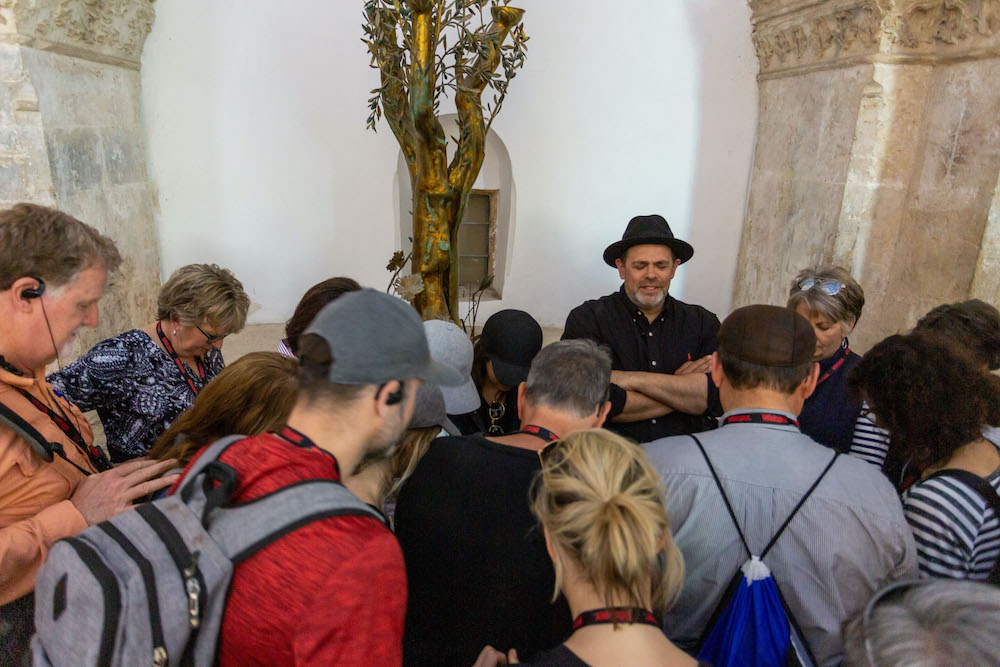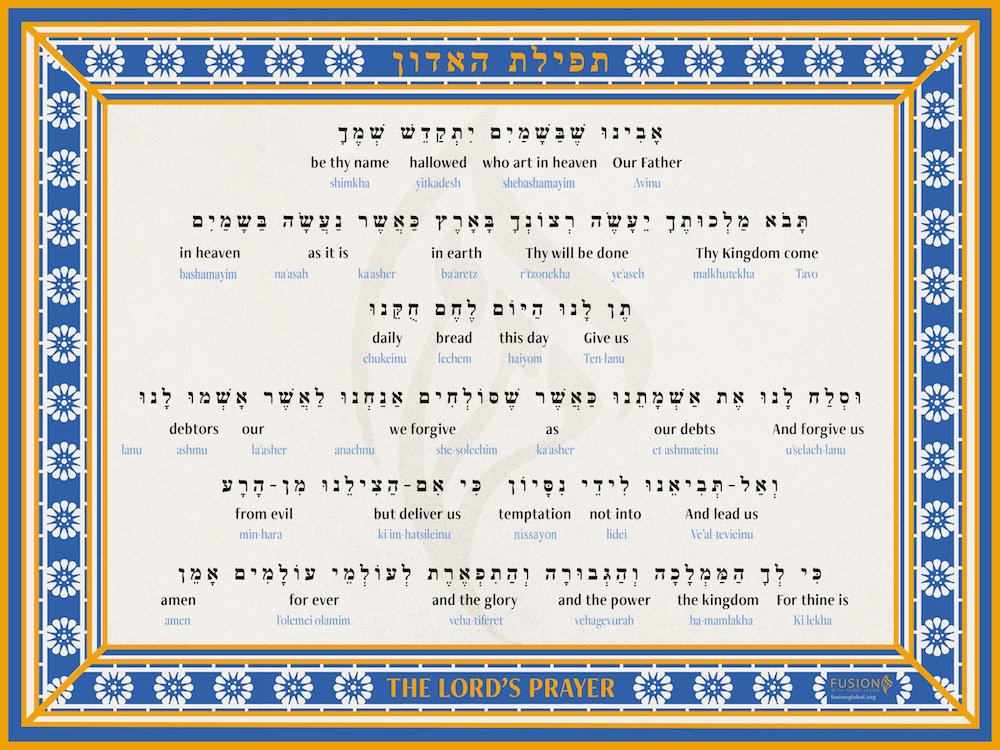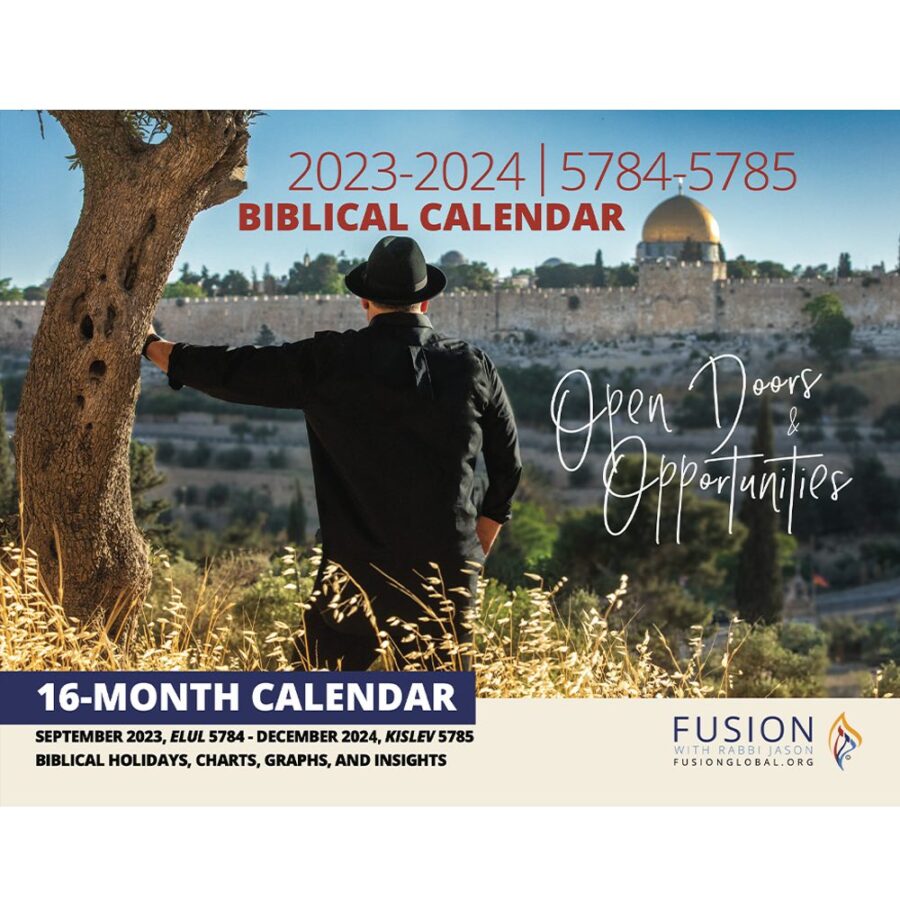The Lord’s Prayer a Teaching by Rabbi Jason Sobel

The Lord’s Prayer and You
with Rabbi Jason Sobel
Prayer is essential to a flourishing spiritual life. In the Scripture, the Apostle Paul directs us to “pray constantly” (1 Thess 5:17). What is prayer? For many people, prayer is heartfelt communion with God, sincere “dialogue” with our Maker. This communication commonly takes the form of spontaneous, unscripted speech. But throughout the history of both the Jewish and Christian traditions, there have also been formal, written prayers for the entire community’s use.
For example, during Yamim Noraim—the “Ten Days of Awe” (the period between Rosh Hashanah and Yom Kippur)—the Jewish people recite a prayer called Avinu Malkeinu, “Our Father, Our King.” This title is derived from two key biblical passages:
For You are our Father
even if Abraham would not know us
or Israel not recognize us.
You, Adonai, are our Father, our Redeemer—
from everlasting is Your Name. (Isaiah 63:16 emphasis added)For Adonai is our Judge,
Adonai is our Lawgiver,
Adonai is our King
He will save us! (Isaiah 33:22 emphasis added)
Rabbi Joseph H. Hertz (former Chief Rabbi of the British Empire) described this prayer as “the oldest and most moving of all the litanies of the Jewish Year.”1 It has a history that goes back to the time of Yeshua-Jesus (perhaps earlier) and has several iterations.
This information sets a profound backdrop for the most well-known and central prayer in Christianity, “The Lord’s Prayer” (also referred to as the “Our Father” in some traditions). You see, while the Jewish people did have a general understanding of God as Father, Yeshua radically intensified it when He gave the disciples this prayer in the Sermon on the Mount. We could even compare this intensification with Yeshua’s teachings in that same sermon making the commandments regarding murder and adultery more intense than traditionally imagined (see Matt 5:21-30).
Profound insights are awaiting us in the various petitions and declarations of The Lord’s Prayer—from invoking God’s Kingdom to daily bread and the challenges of forgiveness. Countless books have been written on this prayer and for many good reasons. But more than any of those concepts, we must first understand that the salutation of “Our Father” is crucial because it shapes our fundamental understanding of who God is.
Written in Hebrew, English, and transliterated, get THE LORD’S PRAYER to have with you, at home, in your office, on your computer and on your phone.
This design is sure to remind you of who you are and whose you are.
Another biblical prayer functions in a similar manner: the Shema. Found in Deuteronomy 6, the Shema is the central prayer of Judaism..
“Hear O Israel, the LORD our God, the LORD is one.” – Deuteronomy 6:4
While the Shema emphasizes the incomparable greatness of Adonai, The Lord’s Prayer invites us to draw near to a loving and compassionate Father. Similar to how the Shema introduced radical monotheism to the world, The Lord’s Prayer introduces an equally radical intimacy and personal dependence on the one true and living God as Father. The Orthodox theologian Alexander Schmemann wrote, “In its deepest and original sense Christianity is the religion of fatherhood, which means that it is not founded on intellectual ideas or philosophical deductions, but on the experience of love which floods our whole life, on the experience of personal love.”2
Each time we pray this prayer, then, Yeshua reminds us that we’re not part of an organization— we’re members of a family. We don’t pray to a remote, aloof life force; we commune with our Abba in complete dependence and trust. Ours is a faith meant to be personally experienced, not merely intellectually acknowledged.
And as we pray to “our Father in heaven,” every nook and cranny of our lives will be flooded with His perfect love.
Unless otherwise noted, all biblical passages referenced are in the Tree of Life Version.
1 Joseph H. Hertz, The Authorized Daily Prayer Book with commentary, introductions and notes (rev. American ed. 1948, NY, Bloch Publ’g) page 161
2 Alexander Schmemann, Our Father, trans. Alexis Vinogradov (Crestwood, NY: St. Vladimir’s Seminary Press, 2002), 21.
"I never realized how significant one letter could be. I see God’s Sovereignty and how everything points to Jesus from beginning to end."
What is Fusion with Rabbi Jason?
It is in looking back at what God has done that we can see forward to His future plans for us. “For I know the plans I have for you,’ declares the Lord, plans to prosper you and not to harm you, plans to give you hope and a future” Jer 29:11.
At Fusion Global with Rabbi Jason Sobel, we want to add definition to your faith as we restore the lost connection to our ancient roots and rediscover our forgotten inheritance.





